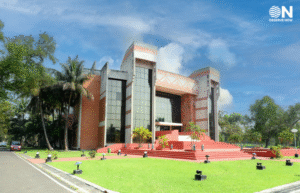Neuroeducation, the fusion of neuroscience and pedagogy, is quickly altering the educational scenario. This interdisciplinary field delves into the brain’s inner workings, providing insights that could reshape teaching methods, curriculum development, and student engagement. By aligning educational practices with the brain’s natural cognitive functions, neuroeducation offers the potential to create more effective and enriching learning experiences.
The global neuroeducation market is anticipated to exceed USD 3.0 billion by 2032, with a consistent CAGR of 3.4% from 2022 to 2032. By 2023, it is expected to reach USD 2.2 billion, indicating a notable growth trajectory for the future of neuroeducation. In light of this, Siddharth Mala, Correspondent, ObserveNow Media, engaged with experts to gain deeper insights into the subject.
The Convergence of Neuroscience and Education
Neuroeducation is founded on the idea that a deeper understanding of the brain’s role in learning can significantly change the way education is delivered. Traditionally, teaching methods have been guided by intuition and experience, but neuroeducation brings a scientific approach to the forefront. It examines how the brain processes information, forms memories, and acquires skills, equipping educators with tools to develop more focused and impactful teaching strategies.
The incorporation of neuroeducation into classrooms is already challenging and transforming traditional teaching practices.
Vinay Singh, Executive Director and CEO, Thomson Digital and Q&I stated “Neuroeducation has transformed traditional teaching methods by aligning them more closely with the brain’s natural learning processes. By integrating neuroscience with education, we’ve been able to develop strategies that enhance how students absorb and retain information, such as through multisensory learning and spaced repetition.”
Neuroeducation also highlights the critical role of emotional and social factors in learning. Research demonstrates that emotions significantly influence how the brain processes and retains information. Consequently, educators are increasingly integrating social-emotional learning (SEL) into their curricula, creating environments where students feel safe, supported, and motivated to learn.
One of the most promising aspects of neuroeducation is the creation of personalized learning plans that cater to the unique cognitive profiles of individual students. By applying neuroscience insights, educators can identify each student’s strengths, weaknesses, and learning preferences.
Dr. Setu Havanur, Assistant Professor, School of Liberal Arts and Design Studies, Vidyashilp University highlighted “Learning challenges were passed off as behavioral issues among students, but advancements in neuroeducation research have highlighted how these can be understood as social or structural issues. For example, good instructional practices that cater to neurodivergence can alleviate learning anxiety, attention deficits, and poor recognition of social cues (Goswami 2006).”
Research-informed academic accommodations and innovative instructional practices can go a long way in including neurodivergent folks in the learning processes of a classroom and beyond. At Vidyashilp University, we conduct annual training and workshops for faculty and administrative staff to raise awareness of neuroeducation, and the adoption of best practices from other contexts into the university, further added Dr Havanur.
As neuroeducation evolves, several advancements are expected to further enhance its impact on education. Developments in neuroimaging and brain-computer interfaces may soon enable real-time monitoring of students’ cognitive states, allowing teachers to adapt their methods dynamically. Additionally, the expanding field of neuroplasticity—understanding the brain’s capacity to change and adapt—could lead to innovative strategies for retraining the brain in students with learning disabilities or cognitive impairments.
“Neuroeducation is a holistic approach that integrates cognitive assessment, tailored strategies, and feedback mechanisms to optimize learning outcomes. By understanding individual learning styles, strengths, and areas for improvement through cognitive assessments, personalized learning plans can be crafted to include strategies such as visual aids, hands-on activities, mnemonics, or adaptive learning platforms. Continuous assessment and feedback mechanisms help adjust learning plans to address cognitive challenges and optimize learning outcomes” highlighted Prof. (Dr.) Uma Bhardwaj, Vice Chancellor at Noida International University.
It recognizes the importance of emotional regulation, incorporating techniques to support students in managing stress, anxiety, and emotional responses that may impact learning, thereby creating a comprehensive and supportive learning environment.
Neuroeducation signifies a fundamental shift in how we approach teaching and learning. By exploring the intricacies of the brain, educators can design curricula and teaching methods that align with cognitive processes, resulting in more effective and enriching educational experiences. As the field progresses, the potential for personalized learning and dynamic teaching strategies will only expand, promising a future where every student can achieve their full potential.
“An effort to formulate institution-specific policy to support neurodivergent students and challenges arising from common mental health conditions to access and thrive in a higher education context is a top priority” concluded Dr Harvanur.























